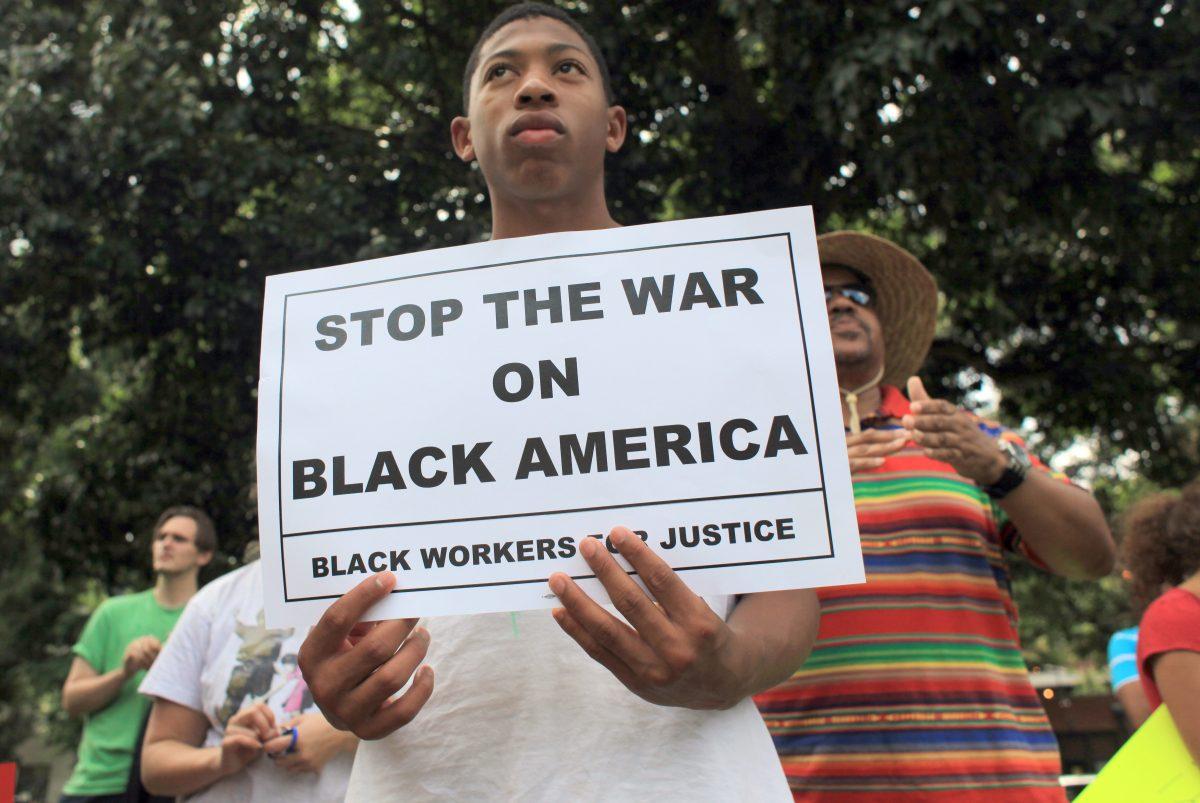People in cities across the United States have protested the verdict of the George Zimmerman trial since it was handed down Saturday, and Raleigh is no exception.
Zimmerman, of Sanford, Fla., was acquitted of manslaughter and second degree murder charges Saturday in the shooting death of Trayvon Martin, a 17-year-old African-American high school student.
Many claim Zimmerman racially profiled Martin for walking around the neighborhood where they both lived in at the time. Zimmerman got in his car and followed Martin, against police orders, and they got into a physical altercation. The teenager was shot and killed.
The day after the verdict was announced, about 100 people gathered in downtown Raleigh to protest Zimmerman’s acquittal and bring to light what they called a bigger civil rights issue.
During the protest, speakers compared Martin’s death to the 1955 slaying of Emmett Till.
Till, 14, was visiting relatives in Mississippi when he supposedly flirted with a white woman. Later, the woman’s husband and others brutally beat Till before shooting him and throwing him in a river.
The defendants were found not guilty of the murder and later confessed after the trial to the press that they had killed Till, but they couldn’t be tried again due to double jeopardy.
The event helped inspire the civil rights movement.
“This is not new for black people in this country,” said Ajamu Dillahunt, a leader with rally organizers Black Workers for Justice, according to the News & Observer. “Every year since 1955, black men, freedom fighters and others have been gunned down by the police, the paramilitary and vigilantes.”
Steven Greene, an associate professor of political science at N.C. State and a civil rights expert, generally agreed with the connection between Till and Martin.
When asked if the Zimmerman acquittal is similar to the Till murder he said, “It’s obviously a stretch, but [the Till murder] is a crystal clear case of racial injustice, so speaking to those larges issues, certainly,” Greene said.
People at the rally chanted “Guilty” and held up signs saying, “Stop the War on Black America” among others.
Speakers at the demonstration also mentioned other instances to back up the protesters’ view that the judicial system is not adequately serving African-Americans.
One example noted was the case of Carlos Riley Jr., who is accused of shooting a Durham police officer. He is currently in jail with bail set at $1 million, according to a webpage made by his family.
Supporters say Riley didn’t commit the crime, and that the officer shot himself in the leg while drawing his weapon.
They also discussed Shon McClain, an African-American inmate who was killed by a correctional officer after an altercation.
Greene agreed with the protestors’ stance that the Zimmerman acquittal is part of a larger civil rights issue.
“Regardless of specific details, most Americans feel deep down that if a black teenager had shot a white adult and claimed self defense, there’s no way we would have seen this outcome—he would have been in jail,” Greene said. “It speaks to larger issues of race in the criminal justice system. There’s pretty good evidence that the color of your skin effects the quality of justice you receive, regardless of if the trial has bought up these issues.”
However, Greene said the case has some unclear points that could skew people’s perception of the trial.
“The problem is, you have to admit—regardless of what happened—there’s ambiguity in this case,” Greene said. “The only person who knows what happened in George Zimmerman, and he obviously has a clear agenda of how he’s going to react to that. From what I’ve read, he suffered some injuries that are, again, going to cloud our understanding of what happened.”








